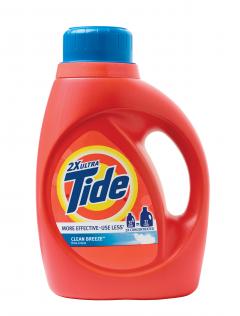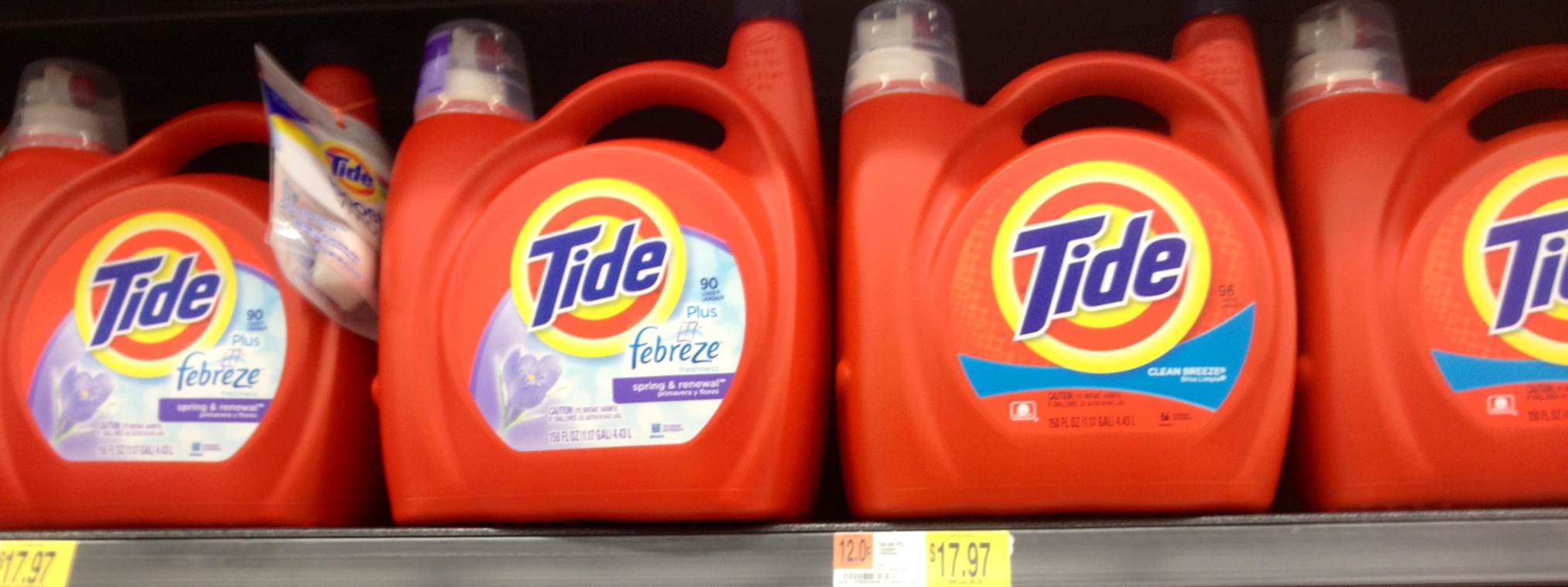Spinning Richard In His Grave
Earlier this month, DNA tests confirmed that remains unearthed by archeologists in Leicester, England, are those of former ruler Richard III. Adding insult to injury, Richard was found beneath a parking lot, where triumphant Tudors parked him after hacking off a chunk of his head during the Battle of Bosworth Field in 1485. Bummer.
 Richard’s demise ended the War of the Roses, the brutal civil war that kept England in chaos for decades. But his remarkable reappearance has triggered another round of heavy fighting in the PR War of the Roses, a conflict that has raged for centuries. It’s a peculiar, passionately fought struggle that makes legendary grudge matches like Coke® vs. Pepsi®, Mac® vs. PC, and Ford® vs. Chevy® look like short-lived schoolyard spats. Over five hundred years after his foes laid him in his grave, supporters and detractors are still spinning Richard.
Richard’s demise ended the War of the Roses, the brutal civil war that kept England in chaos for decades. But his remarkable reappearance has triggered another round of heavy fighting in the PR War of the Roses, a conflict that has raged for centuries. It’s a peculiar, passionately fought struggle that makes legendary grudge matches like Coke® vs. Pepsi®, Mac® vs. PC, and Ford® vs. Chevy® look like short-lived schoolyard spats. Over five hundred years after his foes laid him in his grave, supporters and detractors are still spinning Richard.
It wasn’t always good to be king, especially in not-so-merry olde England. Every time you tried to sit down, some upstart was shouting “Usurper!” and raising an army to pop a tallboy can of whup-ass on your royal claim. Family squabbles morphed into bitter wars that blundered across countries, continents and centuries. (And you thought Turkey Day was tough at your place.) Anyone looking for exemplary behavior in medieval monarchies better pack a lunch. Preferably one that will last for thirty years.

The War of the Roses was still dragging on when Richard’s brother, King Edward IV, died of natural causes. Edward’s twelve-year-old son, Edward V, was next in line for the throne. Richard, a battle-hardened commander and fierce defender of his brother’s reign, was appointed Lord Protector of the realm. He was supposed to serve as a guide and guardian, shepherding the young prince to the highest seat in the land. It didn’t quite work out that way.
Parliament declared Edward V ineligible for the throne due to his dad’s convoluted marital history. Richard was crowned king, and both young Edward and his little brother vanished from the Tower of London, never to be seen alive again.
Richard ruled for two years before a rare battlefield bungle left him unhorsed, unhelmeted and unceremoniously dethroned. The victorious Henry Tudor hardly had the strongest of claims to the crown. But as King Henry VII, he established a dynasty that can be traced all the way to the Windsors, the current English royal family. (Insert stately wave here.)
Warring factions learned the value of public relations long before the rise of social media. And we all know that history is written by the winners. As soon as Richard was out of the picture, the Tudors kicked their marketing machine into high gear, painting him as one of the most vicious villains ever to walk the earth.
 It pays to have a great writer knocking this stuff out, and the Tudors lucked into the greatest of them all: William Shakespeare. Written a century or so after the King’s downfall, the bard’s “Richard III” sealed the public perception of Richard in glorious prose. Physically and mentally twisted, Shakespeare’s Richard is a “poisonous bunch-back’d toad” who delights in every dastardly deed as he murders his way to the top. Anyone who steps or stumbles between him and the throne is doomed, including his darling nephews. Thank goodness the glorious Tudors put that mad dog down!
It pays to have a great writer knocking this stuff out, and the Tudors lucked into the greatest of them all: William Shakespeare. Written a century or so after the King’s downfall, the bard’s “Richard III” sealed the public perception of Richard in glorious prose. Physically and mentally twisted, Shakespeare’s Richard is a “poisonous bunch-back’d toad” who delights in every dastardly deed as he murders his way to the top. Anyone who steps or stumbles between him and the throne is doomed, including his darling nephews. Thank goodness the glorious Tudors put that mad dog down!
But there have always been those who saw things differently. Richard’s champions say that, though the king did suffer from curvature of the spine, he was far from the homicidal, hunchbacked slimeball of Tudor smears. In their eyes, Richard III is a courageous warrior who triumphed over his physical handicap and a kindly king whose reign was cut short by envious traitors. They point out that Richard enacted much-needed economic reforms. That he lifted restrictions on the publishing and distribution of books. And that he implemented a series of major legal reforms—including establishing bail, limiting property seizures, and creating courts where previously unrepresented commoners could bring their cases.
Fans claim that Parliament’s appointment of Richard was transparent and legal, not some prearranged backroom deal. They also remind us that there’s no solid evidence that the king had anything to do with his nephews’ disappearance. After all, Richard’s rivals would have benefitted from the two princes vanishing as much or more than he did.

Richard’s proponents have formed various “Ricardian” societies devoted to reforming his image. Re-positioning a tarnished royal brand centuries after it left the shelf seems like a noble cause, but the haters are having none of it. The PR War of the Roses rages on, with both sides taking advantage of this month’s news to rush to the media battlements and fire off their opinions. Meanwhile, Richard sleeps the long, long sleep of kings, dreaming of the horse that will deliver him from the presence of his enemies. Perhaps it’s a Ford Mustang with the lot entry stub stuck in the cupholder.
Sorry, Chevy.
(Note: In addition to the whole “good king/bad king” controversy, I am well aware of another ongoing debate. Namely, whether or not William Shakespeare wrote any plays, much less a classic like “Richard III.” Please, one centuries-long historical brouhaha at a time, dear reader. I’ve got a lunch date.)
 Last spring, a series of stories centering on a legendary household name bubbled up in the press. Tide® laundry detergent was becoming one of the most-stolen products in America. The trend was puzzling, since skilled shoplifters typically snatch small, high-ticket items and Tide comes in a bulky plastic jug. Stranger still, those bright orange jugs were often the targets of organized raiding parties. While a car idled in the parking lot with the trunk open, crooks crammed carts with Tide, rushed outside, filled the trunk, and made a (ahem) clean getaway. Individual stores were being struck repeatedly, some several times a day.
Last spring, a series of stories centering on a legendary household name bubbled up in the press. Tide® laundry detergent was becoming one of the most-stolen products in America. The trend was puzzling, since skilled shoplifters typically snatch small, high-ticket items and Tide comes in a bulky plastic jug. Stranger still, those bright orange jugs were often the targets of organized raiding parties. While a car idled in the parking lot with the trunk open, crooks crammed carts with Tide, rushed outside, filled the trunk, and made a (ahem) clean getaway. Individual stores were being struck repeatedly, some several times a day.

 Few could have been surprised when, following the finale of The Fiscal Cliff Follies, a survey revealed that We the People hold the 112th Congress in low esteem. Lower, that is, than cockroaches, colonoscopies, used-car salesmen, Nickelback, Donald Trump, traffic jams and head lice, among other delights.
Few could have been surprised when, following the finale of The Fiscal Cliff Follies, a survey revealed that We the People hold the 112th Congress in low esteem. Lower, that is, than cockroaches, colonoscopies, used-car salesmen, Nickelback, Donald Trump, traffic jams and head lice, among other delights. Senate Majority Leader Lindsey Lohan and Speaker of the House Kim Kardashian take the advice of lobbyist Fidel Castro and enact legislation declaring the United States a communist country. New, government-owned meth labs fund the costly transition to a Marxist economy. Playground bullies are hired as telemarketers, calling all of us at home during dinner to spread the news. Finally, John Edwards and a cadre of North Korean bioweapons experts knock on the front door, offering you the choice of the Ebola virus or an STD.
Senate Majority Leader Lindsey Lohan and Speaker of the House Kim Kardashian take the advice of lobbyist Fidel Castro and enact legislation declaring the United States a communist country. New, government-owned meth labs fund the costly transition to a Marxist economy. Playground bullies are hired as telemarketers, calling all of us at home during dinner to spread the news. Finally, John Edwards and a cadre of North Korean bioweapons experts knock on the front door, offering you the choice of the Ebola virus or an STD. Disaster struck the data mining industry this week when a cave in at the Omnivore Corporation’s InfoGrab Data Mine trapped miner Dylan Dinkins beneath several tons of adorable kitten videos for three days. The cave in and subsequent rescue effort are the focus of a new investigation by the Federal Mine Safety Bureau.
Disaster struck the data mining industry this week when a cave in at the Omnivore Corporation’s InfoGrab Data Mine trapped miner Dylan Dinkins beneath several tons of adorable kitten videos for three days. The cave in and subsequent rescue effort are the focus of a new investigation by the Federal Mine Safety Bureau.
 A friend dropped a line from the classic kiddie tune “Tie Me Kangaroo Down, Sport” into a conversation recently. “Who did the original hit of that?” I asked. Despite the tremendous tonnage of pop cultural trivia crammed into our brainpans, both of us drew a blank. Fortunately the Internet was just a smart phone away, and we had the answer in no time.
A friend dropped a line from the classic kiddie tune “Tie Me Kangaroo Down, Sport” into a conversation recently. “Who did the original hit of that?” I asked. Despite the tremendous tonnage of pop cultural trivia crammed into our brainpans, both of us drew a blank. Fortunately the Internet was just a smart phone away, and we had the answer in no time.